UCPI Daily Report, 30 April 2021
Tranche 1, Phase 2, Day 8
30 April 2021
Evidence from witness:
Peter Hain
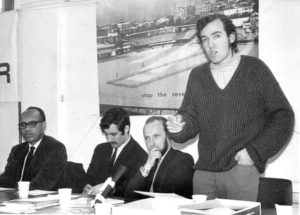
Peter Hain at a press conference called by the Stop the Seventy Tour (STST) campaign, 7 March 1970. Left to right: Jeff Crawford (Secretary of the West Indian Standing Conference), cricketer Mike Brearley, STST member Mike Craft, & STST Chair Peter Hain.
On Friday 30 April, the Undercover Policing Inquiry was devoted to hearing evidence from just one person, Peter Hain. Hain had a rich career as an activist, and hence a thick secret police file that include decades of reports from undercover officers of the Special Demonstration Squad.
His long experience as a public speaker and a politician made him a strong witness. Not only did he challenge the line of questioning the Inquiry had chosen, he also made a strong case for non-violent direct action.
Hain refused to be put in the position where, as an activist, he had to defend his campaigning, telling the Inquiry this attitude put them and the police at the wrong side of history. Time and again, Hain used the questions as an opportunity to say what he had to say. In doing so, this day of testimony resulted in an interesting lecture on social history.
FROM ACTIVIST TO PEER OF THE REALM
As well as his involvement in the Anti-Apartheid Movement campaigning against the racist apartheid regime in South Africa, Hain was in the Young Liberals – a more radical and progressive group than the main Liberal Party. He served as a member of its National Executive between 1973-75, and then as President from 1975-77.
Hain chaired the Stop The Seventy Tour (STST) campaign, which opposed a planned cricket tour of England by an all-white South African team, from its launch in September 1969 until it was disbanded in late May 1970.
He was also active in the Action Committee Against Racialism 1970-73 and a founder member and press officer for the Anti-Nazi League (ANL). He joined the Labour Party in September 1977 and was then elected as an MP in 1991. He was then a government minister for five years and Cabinet minister for seven years.
This meant that he signed off ‘on work of utmost sensitivity’. He signed warrants for surveillance and interception, and saw intelligence reports produced by the police, Security Service (MI5), MI6 and GCHQ. Hain has been a Privy Councillor since 2001, and a member of the House of Lords since 2015.
APARTHEID
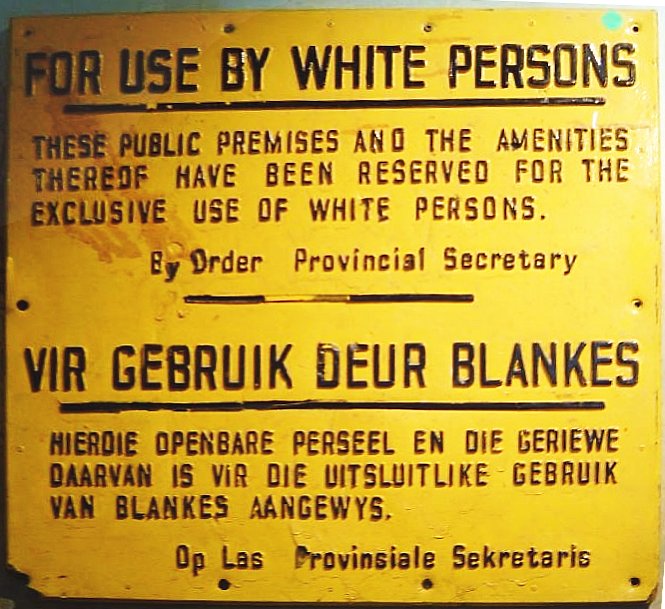
‘For use by white persons’ sign, apartheid South Africa
Apartheid was a system of institutionalised racial segregation that existed in South Africa and South West Africa (now Namibia) from 1948 until the early 1990s. It categorised people into a hierarchy of racial groups, with whites at the top.
The laws segregated all areas of life, reserving the best for whites. It applied to everything from education, employment and housing to which bench to sit on or which beach people could visit. Most of the population was denied the right to vote. Sexual relationships and marriages between people of different racial groups were illegal.
Asked about the Anti-Apartheid Movement (AAM), Hain explained that, though apartheid is universally regarded as immoral today, it wasn’t so in the past:
‘For 50 years or so it was a bitter long hard struggle, and people take it for granted that everybody was against apartheid, because it was such a detestable institution of racism like the world has never seen… You have quite correctly depicted it as a movement that was in a minority, albeit with a large reservoir of public sympathy’
The South African apartheid state presented itself as a bulwark against communism, and it suited its purposes to be seen as part of the ‘democratic West’. Of course, it went against all the principles of democracy as the vast majority of the population was denied the right to vote. It was one of the most vicious tyrannies that the world has ever seen where a minority, less than 10% of the population, oppressed the great majority on grounds of race.
‘We were on the side of justice and equality and human rights, and the apartheid regime was on the wrong side of all those issues.’
The Western governments supported the regime by supplying it with arms, continuing to invest in and trade with it, opposing sanctions, and more.
SOUTH AFRICAN EXILE
Hain had grown up in apartheid South Africa. His parents were from conventional white South African families but ‘very unusually took a stand against the apartheid system’ and were forced into exile as a result. They moved to Britain in 1966 and lived in Putney, south London.
In documents produced by the Metropolitan police, his parents are described as communists. Hain says this is not true, his parents were members of the South African Liberal Party, never the Communist Party.
Hain said the Met files on his family contain details that could only have come from South African sources. Dismissing opponents of apartheid as communists was standard practice for them, and this distortion is typical of both the South African security services and the Met’s Special Demonstration Squad (SDS) reports.
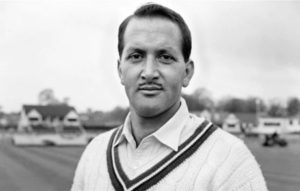
Basil D’Oliveira
Hain recalled the case of South African-born ‘cape-coloured’ cricketer Basil D’Oliveira. As he was ‘Cape Coloured’ (a South African ethnic group with diverse ancestral heritage), he was not allowed to play in his own country, but started playing for the England team while living here in exile. He was then excluded from taking part in the England team’s 1968 tour of South Africa to appease the apartheid regime.
Just before the team was to leave, however, he was asked to replace another player who was injured, prompting accusations from then Prime Minister Vorster and other South African politicians that the selection was politically motivated. Attempts to find a compromise followed, but these led nowhere. The English subsequently cancelled the tour.
This had made it clear to young Hain that the English cricket authorities were on the side of apartheid, and supported the racist form of cricket operating in South Africa.
The Inquiry moved on to discuss the ‘Wilf Isaacs Eleven tour’. Isaacs was a businessman – and South African Army officer – who sponsored a cricket tour of Britain in 1969. Such sporting tours by all-white teams were regarded as promotion of apartheid, and they also provided a tangible target for anti-apartheid campaigners in Britain.
Hain was 19 at the time. He said he is proud to recall the pitch invasion he organised in Basildon on 5 July 1969. As far as he knows, this was the first non-violent direct action that took place against a South African cricket team.
STOP THE SEVENTY TOUR
This led to advance planning for similar future tours. They formed Stop The Seventy Tour (STST) to oppose a planned visit from the South African cricket team in 1970. In the run up to that, the campaign started protesting against the South African Springboks rugby team in the winter of 1969/70.
The Hain family’s small flat became the headquarters for the STST campaign. Meetings were held there, their phone number became the national campaign contact, and his mother the group’s unofficial secretary.
Hain explained:
‘this was a campaign which came out of nowhere – it suddenly became massive; it was spontaneous and decentralised, with autonomous groups in different places.’
The Inquiry put it to Hain that there was a ‘potential for violence’ in the STST campaign because emotions must have been ‘running high on both sides’.
Hain refuted this, reconnecting various incidents where he and others used purely non-violent tactics.
‘Don’t scrum with a racist bum’ became a much-loved slogan following protests at the Springboks’ arrival at Heathrow Airport in October 1969. The team’s first training session, which they found out took place near the Hain family home, became the target of protest by STST. The AAM organised a demo at the South African embassy, where the team was due to attend an evening reception.
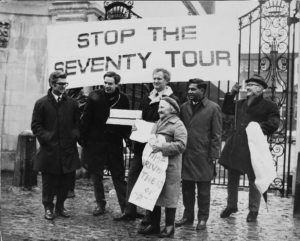
Stop The Seventy Tour protest, Lords cricket ground, London, 1970
STST’s Ad Hoc Committee met at the Hain family’s flat on 5 December 1969. Hain recollects that it consisted of ‘people I trusted’, planning the upcoming protests at the Springboks’ match at Twickenham. He believes that this group was never infiltrated.
However, there is a detailed report of this meeting [UCPI0000008656], which records six people attending, signed by the SDS’ Sergeant Mike Ferguson (HN135).
In their suggestive line of questioning, the Inquiry stated that there was an element of deliberately misleading fellow activists by suggesting that all their protests would be outside the cricket ground, when in fact the main event – the pitch invasion – was inside. Hain said that there was a good reason for not mentioning it, to keep it secret from the police; had the police known about the pitch plan, it would have scuppered chances of success.
Hain told the story of one activist dressed in a suit, who managed to drive the team’s coach for a short time, until he was forced to a halt by members of the rugby team and assaulted by them.
Asked about tin tacks sprinkled on a pitch at a protest in Bristol, Hain made it clear that he was opposed to this tactic, and that it was a one-off action by one person.
He said that claims in reports by SDS officer Mike Ferguson that this was to be an ongoing tactic, and that STST would supply the tacks, are outright lies. And, indeed, they were just part of a pattern of lies and exaggerations in the reports.
At the previous day’s Inquiry hearing, Hain’s fellow anti-apartheid campaigner Jonathan Rosenhead had also noted the ‘creative’ tendencies’ in Ferguson’s reporting. This might be a special concern as Ferguson went in to head the SDS in 1978.
Hain was emphatic, and turned the question from one asking him to justify his actions, to the spycops justifying theirs:
‘I don’t remember any instance of a planned violent act, although obviously this tin tacks one could have led to that. But if you’re making the point that this was a massive movement and there were lots of people organising spontaneously, yes, there were.
‘But does that justify Mike Ferguson deploying special, extraordinary police resources to take part in meetings in my living room or my parents’ living room? And in Young Liberal meetings, another undercover officer going by the name of ‘Mike Scott’, who I again don’t recognise?…
‘Why were they not targeting the agents of apartheid bombing and killing and acting illegally and violently in London at the time?…
‘I mean, this was a completely disproportionate waste of police resources, and it was on the wrong side of history. What the Mike Fergusons and the Mike Scotts actually should have been doing was helping bring down the apartheid system and deploying British security and policing resources to track down apartheid agents acting illegally in London. Instead of that they were spying on us.’
INSINUATIONS OF VIOLENCE
Asked if it was understandable that police ‘faced with these novel, rather effective tactics’ should seek to gather all the information on secret plans, Hain cut in:
‘I know what you’re trying to insinuate, but… we were transparently public, some might say unwisely honest, about what our intentions were, which was to stop the tour by non-violent direct action.
‘And that leads me to where I think you’re taking me. Why was an undercover officer in virtually every meeting that I attended when they could have found out what I was planning to do by what I’d publicly stated?’
Hain set his actions among the noble company of campaigns that were also vilified at the time, but are now celebrated:
‘I see non-violent direct action of the kind that I advocated and participated in through the Stop the Seventy Tour campaign, as having a long lineage going back to the Suffragettes, to early trade unionists, to the Chartists protesting for the vote, to Mahatma Gandhi in India protesting against British colonial rule for Indian independence. It’s in a long line of non-violent direct action that’s also carried out by Extinction Rebellion and other environmental protests today.’
They were not even doing anything unlawful, he said, pointing out that trespassing on the pitch was not even a criminal offence:
‘I’m still proud that I did non-violent direct action to change the course of history, and we did change the course of history.
‘That Stop The Seventy Tour campaign was fundamental, as Nelson Mandela subsequently told me, having seen it or heard about it from [the prison on] Robben Island where he was at the time, it was fundamental in changing the nature of the Anti-Apartheid Movement, in galvanizing it and in ultimately bringing about the downfall of apartheid’.
ARE YOU, OR HAVE YOU EVER BEEN, A COMMUNIST?
As during the interrogations of Jonathan Rosenhead and Christabel Gurney earlier in the week, the Inquiry opted for a line of questioning reminiscent of the McCarthy Un-American Hearings of the 1950s, in which guilt by association with radical groups or ideas is seemingly used to justify the State’s spying.
Hain was asked about the various radical groups listed as affiliated to the STST; the AAM, the National Union of Students, the National League of Young Liberals, the Student Christian Movement, the International Socialists and the Young Communist League. Hain made a point of adding the United Nations Youth Student Association to this list, and explained that his philosophy:
‘has always been – you bring in the broadest spectrum of opinion that you can that share in common a single objective… who can rally together, even though they may disagree about everything else.’
The Inquiry quoted from another SDS report by Mike Ferguson [UCPI0000008606] on an STST National Committee meeting held towards the end of the group’s activities in May 1970, which read:
‘There could be no doubt that the next two weeks would be crucial as far as getting the tour cancelled was concerned, and the trump cards which STST had to play in connection with the Commonwealth Games and racial disorder which would occur in the event of the tour taking place’
The Inquiry asked:
‘Was racial disorder one of your trump cards, Lord Hain?’
Hain refuted the insinuation that STST would somehow incite and organise racial disorder, explaining that the disorder mentioned was from the potential of pro-tour and pro-apartheid groups banding with the National Front and other racists. He had meant that this might get the tour cancelled if other methods failed.
RUGBY TOUR
Turning to the South African Springboks’ rugby tour of 1969, the Inquiry read a passage from Hain’s memoir, Outside In:
‘Suddenly the campaign exploded into action and into prominence. It was announced on 23 October that weedkiller had been sprayed on Oxford University’s rugby ground just a week before the team was due to arrive. The words “Oxford rejects apartheid” appeared in five-foot letters on the pitch.
‘The next day the university rugby club officials called off the match. They said that they had taken this decision after consultations with the Thames Valley Police “because of the risk of violence”.’
Asked if this was a fair summary of the events, Hain once again deftly cut down the implications of the question:
‘What doesn’t summarise it fairly is the risk of violence. The Oxford anti-apartheid group, which organised this quite independently of me, I might add, though with my general approval, though I was never a fan of spraying weedkiller anywhere.
‘But the Oxford Anti-Apartheid Movement was not intending violence; it was intending to adopt the same non-violent direct action tactics that it had adopted during the Wilf Isaacs tour, except on a much, much bigger scale, and that was why the game was cancelled and the venue was transferred.’
Hain made the point that the Anti-Apartheid Movement suffered extreme violence from agents of the South African State. This included the bombing and arson attacks on their offices, letter bombs being sent to their homes. Hain himself was sent one – it was opened by his teenage sister, and the matter was never fully investigated by the police. Hain demanded to know why this was.
He described the brutal response to a pitch invasion at the Springboks’ match in Swansea in November 1969.
‘They ran on, they sat down, they interrupted play for, as I recall, over ten minutes, as it was intended. They were then carried off by the police and thrown to rugby stewards, rugby vigilantes, if you like, recruited for these purposes, and thoroughly beaten up. A friend of mine had his jaw broken, a young woman demonstrator nearly lost an eye…
‘They could have been carried out of St Helens, but there was clearly a pre-planned attempt to beat the hell out of the protesters, and that’s what happened.’
After outrage in the mainstream media and a delegation, led by Hain, to the Home Office, such policing did not recur.
Hain described the protests that followed the Springboks to Dublin. 10,000 people marched, led by Bernadette Devlin MP (whose name appears in many Special Branch reports). This was the biggest demo of the entire tour, organised by two South African exiles, and the largest demonstration of any kind in Dublin for decades.
TRUE SPIES – OR TRUE LIES?
In 2002, the BBC broadcast a three-part series called True Spies that, for the first time, revealed the SDS to a wide audience.
In what was clearly an effort to paint the secret police in a positive light, journalist Peter Taylor interviewed several spycops and their cover officers, and introduced former Special Branch officer, Wilf Knight, the handler of the late Mike Ferguson.
Because Ferguson was identified in True Spies, it made no sense for the Inquiry to restrict his real name, but it did indeed grant anonymity for his cover name (for most former spycops this is the other way round, either that or both their real and cover name are restricted).
Today we learned that the Inquiry has told Hain the cover name in case it jogged his memory, but it did not. It is frankly bizarre for the Inquiry to be protecting the fake name used 50 years ago by a spycop who is now dead.
True Spies episode 1: ‘Subversive My Arse’, 27 October 2002
The Inquiry quoted a section from the True Spies transcript (page 12), where Knight proudly says:
‘I don’t think Peter Hain ever realised that he had a police officer as his number two.’
Hain refuted this, saying he never had a ‘number two’ at all. He thinks the undercovers routinely lied in their reports.
In True Spies, Knight described how Mike Ferguson’s SDS reports helped thwart the protestors plans:
‘The intention was for demonstrators, just prior to half time, to throw flare bombs, smoke bombs and metal tacks onto the pitch. Mike passed that information on, it was passed on to the uniform, and at the appointed time officers were there with sand buckets and metal magnets and although they threw as many as they could onto the pitch they were snuffed out, taken away and the players didn’t know that it had taken place and when they came out after half time the game carried on.’
Hain said it was:
‘a very clear example of a lie by Mike, a straight lie’
There was no throwing of tacks at Twickenham, let alone police clearing them with magnets. Asked by Counsel to the Inquiry, David Barr QC, if it was possible that Wilf Knight wasn’t lying, merely suffering from some confusion 30 years after the events he described, Hain said:
’“Some confusion” would be a very charitable description of it, if I may say so, Mr Barr, because it was typical of the behaviour of undercover officers, as I’ve seen in the documentation provided to me by the Inquiry, that they very rarely told the truth about what was going on.’
The Inquiry then cited another section from True Spies – the story of how Mike Ferguson diverted attention away from himself by accusing a genuine member of the group of being an infiltrator, who Hain then threw out of the meeting. Hain is pretty sure this is yet another fabrication. He remembers one person being disinvited from attending meetings of the group, but not in the way described.
The Inquiry turned to an SDS report [UCPI0000008660], the STST National Conference in March 1970. Mike Brearley, a British first-class cricketer speaking at the conference, asked STST activists to refrain from violence.
Hain said he applauded Brearley for this, and added that he was a courageous man, the only cricketer to make a public stand in support of the STST campaign. John Taylor was the only rugby international player to do the same.
THE ‘C’ WORD
The report also quoted Hain as saying that, after the Springboks’ tour, STST supporters should move to oppose the broader underlying issues of racism and the capitalist system that nurtures it.
Questioned on whether this meant there was an ulterior motive to the campaign, Hain retorted that the undercovers were trying to push a false narrative about a secretive second strand of the campaign – who wanted to use more violent tactics – which just did not exist.
As for opposing capitalism, he met that point head on:
‘I think that capitalism run in its more extreme way is designed to create a rich elite at the top and great impoverishment down below, instead of to spread wealth and ownership more widely and to allow people to participate more equitably in the running of their economy.
‘So I want a fairer, more just economic system, and I make no bones about that. I was a socialist at the time I was in the Young Liberals and I remain one, and if that’s the discussion we want to have, I’m very happy to have it.
‘But the point I was making at the time was that the British capitalist system was more interested in profits and in trade, than in decency and human rights and justice and non-racism because, actually, its trade of arms and its supplying of arms was perpetuating apartheid, entrenching it and strengthening it.’
SUCCESS
Hain mentioned his belief that South African intelligence operatives infiltrated and secretly recorded meetings, and that they collaborated with the Met’s Special Branch.
Nevertheless, eventually the 1970 cricket tour was called off, just weeks before it was due to start. The STST campaign had been successful. Asked if the planned protests would have gone ahead if it hadn’t been cancelled, Hain enthusiastically confirmed they would. He gave examples of the kinds of exciting tactics the activists had come up with.
Hain emphasised that it came at a crucial time for the campaign against apartheid. Within South Africa the resistance was suffering severe repression, the leaders imprisoned, campaigners who were driven into exile were attacked, arrested and tortured.
‘So this campaign came at a time and achieved a victory which was very, very important for the momentum of the international anti-apartheid movement.’
YOUNG LIBERALS
Moving on to Hain’s involvement with the Young Liberals, the Inquiry noted that it was unusual for the youth wing of a mainstream political party to be prepared to commit minor criminal acts in order to advance its aims.
Hain asked for clarification on what type of minor crime was being invoked:
‘You mean like occurred at the Sarah Everard demonstration at Clapham Common? Would you describe that as a minor…’
He was interrupted and told that he wasn’t there to ask questions.
Hain was presented with the example of his sitting down on a zebra crossing. Hain was happy to admit that he had done this:
‘it did cause a lot of tension within the Liberal Party, though I don’t think that that’s the focus of this Inquiry’
It was pointed out that, according to the SDS reports, the Young Liberals were discussing issues such as pensions, pollution, and homelessness. But did they also discuss non-violent direct action?
Hain pulled the insinuation up into the light:
‘But what’s wrong with it? What is wrong with non-violent direct action?’
He was told there was no specific objection, to which he pointed out they’d labelled it ‘criminal’ and, when pressed, downgraded that to ‘minor criminal’.
‘What I object to about this line of questioning, is when it comes to progressive radical movements, whether it’s environmentalists today, whether it’s anti-racists, Black Lives Matter, whether it’s Greenpeace or Extinction Rebellion or the Anti-Apartheid Movement of its era, we are all presented as somehow subversive or semi-criminal or objectionable or disrupting England’s green and pleasant land.
‘Actually, that pejorative prism through which radical politics is presented is, in my view, completely unacceptable, reprehensible and partisan. That is the sort of perspective of undercover policing and ideology that was driving it. That’s my major concern, and I think, you know, I’m not accusing you personally, but I think you’re reflecting that state of mind’
Hain then talked about how this undercover political policing got to the point where instead of catching the racists responsible for Stephen Lawrence’s death, they infiltrated the Stephen Lawrence campaign that was seeking justice.
REPORTING ON HAIN’S FAMILY
Attention turned to a January 1972 SDS report [UCPI 0000008240] on a Putney Young Liberals, meeting at Hain’s family home. According to the report, spycop ‘Michael Scott’ (HN298, 1971-76) was elected as Membership Secretary. Hain does not recall this person, so thinks he may have operated under another name then.
The report mentions Hain’s sisters, 15 year old Jo-Ann, and 13 year old Sally. Hain condemned the ‘disproportionate, politically biased policing’, adding:
‘I really don’t understand why “Mike Scott” was in this meeting at all, how it could be justified by his superiors and what he was doing with particularly two young women teenagers.’
Whether or not we agree with the aims of campaign groups, why should the police be sent to spy on them? Hain noted that ‘Sandra Davies’ (HN348) told the Inquiry in November that she could have been doing much more valuable things with her time.
The Inquiry’s Chair, Sir John Mitting intervened, explaining to Hain that some of the questions he’s been asked would have been the result of input from the various police lawyers. Although this was meant to reassure Hain that the line of questioning around the legitimacy of his campaigning was not the Inquiry’s viewpoint, it did reveal that the police, nearly 50 years, later are still seeking to justify their actions.
TELEPHONE TAPPED?
Hain was asked if his family’s phone number was used by other groups, and he confirmed that it was. They suspected that their telephone was tapped, so were cautious about what they said on the phone. Hain’s mother had experienced surveillance in South Africa, so was particularly security-conscious.
In his witness statement [UCPI0000034091], Hain refers to a phone call between his mother and undercover officer ‘Mike Scott‘. In his report, ‘Scott’ claimed that she told him to go to a private meeting at Ernest Rodker’s house. Hain rejected this:
‘I find that so unlikely as to be inconceivable. My mother was incredibly careful about what she said on the phone, and since both my parents and us as a family had lived under apartheid and under constant surveillance by the apartheid police, with Special Branch cars parked at the bottom of our drive following us wherever we went, including me to school, occasionally, on my bike, she was ultra careful, to the point of almost being too careful.’
Hain wondered what this undercover is concealing and why he is not telling the truth here.
INDEFENSIBLE
Hain highlighted three more points about the anti-apartheid campaign.
A police report from 1993 – as the apartheid regime was collapsing and Nelson Mandela, three years out of prison, was poised to become president – refers to the Anti -Apartheid Movement as ‘Stalinist-controlled’.
If that is the type of thinking of these units, Hain said:
‘we have a particular ideology of undercover policing which frankly cannot be defended.’
He has also learnt recently, from a document revealed in Kate Wilson’s case in the Investigatory Powers Tribunal, that in November 2003 he was described as a ‘South African terrorist’ by undercover police officer Mark Kennedy. Kennedy was in the National Public Order Intelligence Unit, a parallel unit to the SDS, and deceived Kate (and other environmental campaigners) into a relationship.
At the time this spycop was calling Hain a terrorist, Hain was was a member of the British Cabinet, Secretary of State for Wales, the leader of the House of Commons and the Lord Privy Seal.
‘What is it in the DNA of undercover policing that allows its officers to get such a biased and reactionary view of the world, that they make these kind of biased and completely unrepresentative and libellous and defamatory statements?’
ANTI-NAZI LEAGUE
After the racist National Front (NF) had overtaken the Liberal Party in the Greater London Council elections of May 1970, there was a great deal of concern amongst those opposed to fascism and racism about the rise in racist attacks. People felt the need to tackle the problem, and the Anti-Nazi League (ANL) was formed in 1977.
The Inquiry showed an AP News report about the ‘Battle of Lewisham’ in 1977, with the Inquiry pointing out the distressing view of violence against the police.
Hain told the Inquiry about the kind of violence that the far-right used. They physically attacked, and sometimes killed, people. He describes them as ‘swaggering’ through predominantly Black areas, threatening and committing violence. The NF attacked Jewish, Muslim and Black citizens. The ANL sought to stand in their way and block this violence.
Hain did not understand why the police protected these racist thugs, a group ‘whose avowed purpose is to stir up and promote racial hatred’. He notes that such behaviour was criminalised by a later Labour government (that he served in).
He repeated that the ANL was set up as part of a deliberate strategy to do things differently.
There were local groups – no central membership list – and lots of groups based in specific communities and professions such as ‘Nurses Against the Nazis’, ‘Skateboarders Against the Nazis’ etc. The ANL put out leaflets, and campaigned against the NF’s electioneering. They mobilised to stop them openly demonstrating in the street.
Rock Against Racism organised music festivals, so the public could hear anti-racist messages from a range of punk and reggae bands.
He calls it an ‘innovative campaign’ and went on to explain the concern about the far-right influencing youth culture, especially skinhead culture. Punk bands were invited to play at Rock Against Racism. Hain is proud of a formerly racist skinhead who said he had had been convinced by the arguments of the ANL.
Hain was questioned about physical resistance being used by anti-fascists. He responded with some questions of his own:
‘What should be done? Should the National Front just be allowed to continue to march unchecked or should somebody try to do something about it, as we did, and was done in 1936? Now, in 1936, Mosley’s Blackshirts were attacking Jewish communities very predominant in that part of East London. In the modern age, it’s been Black or Muslim communities that the National Front have targeted. Who else was protecting them?’
When it was suggested that these demonstrations and counter-demonstrations caused a ‘public order challenge’ for the police, Hain was unequivocal about the police’s public safety remit:
‘Their purpose should have been combatting racism and Nazism and its menacing rise at that time’.
A report from 1978 [UCPI0000011673] shows that the ANL was aware of NF’s plans to hold at rally at Islington Town Hall on 27 April. The report says the group, including Hain, were ‘drawing up plans for disruption’. Hain disagrees with their aims being mischaracterised in this way – they actually wanted the event not to take place at all:
‘It’s seen through a prism where we are the bad guys, and the racist and Nazis are not. The NF targeted areas with Black/ Muslim/ Jewish populations for their demos. They attacked mosques and synagogues. I think the police should have been on our side in opposing them’
The Inquiry was shown an SDS report [UCPI 0000016579] of the ANL’s national conference March 1981. A section headed ‘Violence’ was read out, which makes it clear that the ANL explicitly opposed the use of ‘tit for tat’ violence, and did promote a wide range of ways of non-violently supporting the victims of racist violence. Hain said he is grateful that the Inquiry has included these documents.
The next SDS report [MPS-0726913] was about Rock Against Racism, which – as mentioned above – held a giant carnival in Victoria Park in East London, in 1978.
Many thousands of people (the police report says more than 30,000) marched to the park from central London that day to see a host of punk and reggae bands, including Tom Robinson Band, X-Ray Spex, Steel Pulse, Misty in Roots and the Clash.
Asked if he would accept that there is a value in the police collecting such intelligence, Hain replied that the spycops could just have asked them, or the Met officers who were liaising with the organisers of such an open, non-confrontational event, what their intentions were.
30 April 1978 from Asya Gefter on Vimeo.
From the report it becomes clear that the police were mainly worried about the amount of people that would stay over in London, and how that would affect police protection of a planned NF march the next day.
The BBC’s True Spies documentary featured an anecdote from a spycop called ‘Geoff‘ (HN21) about people ‘sitting on sacks of money’. Hain remembers that occasion, it was simply that the money had been collected in donations from people who attended the gig in the park.
Jumping forward nearly 20 years, the Inquiry produced an SDS report [MPS-0742234] on a large ANL meeting that took place at the Camden Centre on 11 June 1994. It was attended by 320 delegates from over 200 separate organisations. By then, as well as being on the ANL Steering Committee, he was a Labour MP.
Hain cited the ‘Wilson doctrine’, an established principle that there must be disclosure of any surveillance of MPs, and said:
‘I think it’s wholly wrong, and I suspect close to being illegal, that undercover officers were reporting on me.’
BACK TO THE EIGHTIES
The Inquiry then produced an SDS report from March 1980 [UCPI0000013868] about a meeting at Westminster Central Hall. This debate, entitled ‘The crisis and the future of the Left’, was chaired by Hain. Tariq Ali and Paul Foot spoke, alongside three MPs; Audrey Wise, Stuart Holland and Tony Benn.
‘For the life of me, I don’t know why they were there except that they were obsessed with spying on left wing events, and it comes back to my concern that the progressive radical side of British politics seemed to be their targets.
‘And when I look back over the years, 50-plus years in politics and bring it up to date, it seems that the constant targeting of progressive radicals of various descriptions, from those explicitly on the left or on the so-called far left, or those on the centre-left, seems to be the focus of attention rather than the right and the far-right’
Hain was told the Inquiry will be hearing about the infiltration of the far-right too. But due to the supposed ‘risks’ to those spycops who were deployed against these groups, this evidence may be heard in secret.
In 2018, The Guardian together with the Undercover Research Group, published a list of groups known to be targeted – as disclosed by the Inquiry – predominantly left wing groups. In stark contrast, the far-right was barely infiltrated by the spycops at all.
As we heard earlier in the week, in the period currently being examined by the Inquiry, they only had one officer infiltrating a far right group and that was by accident. ‘Peter Collins‘ (HN303, 1973-77), infiltrated the Workers Revolutionary Party. Not knowing he was a spy, they asked him, in turn, to infiltrate a breakaway group of the far-right National Front.
The Inquiry was shown several SDS reports from innocuous meetings that Hain is named as attending. One from June 1980 [UCPI0000014020] covered a special conference of the Labour Party at the Wembley Conference Centre.
From July 1980 we saw a report [UCPI0000014080] on British withdrawal from Northern Ireland.
In February 1982 Hain and others spoke at a meeting at Borough Community Centre, about the Right to Work march against unemployment. For reasons that are unclear, the SDS reported on it [UCPI 0000017175].
As well as the pointlessness from a public safety or national security standpoint, Hain was concerned not just about how long these files are retained, but about what they indicate about MI5. He said the Director General of MI5 came to him in July 2000 and said the Security Service files on him had been destroyed. It is obvious that they have not, as these were retrieved from somewhere. The SDS files released by the Inquiry that start with a ‘UCPI00000…’ reference numbers are largely copies from MI5 archives.
Hain became a Minister in 1997, and would have been security-vetted at this time, before being privy to sensitive intelligence.
TAKING SIDES
He said that he is no ‘starry eyed romantic’, that he supports the rule of law and wants to see effective policing. He believes that there is legitimate undercover policing as well as illegitimate undercover policing. He knows that some undercover officers have done important anti-terrorist work, for example. However he would like to see proper boundaries drawn for undercover operations.
He pointed out that if the police adopt an approach of spying on everyone in the hope that this throws up useful intelligence, that leads to the kind of approach that encourages spying on the entire Muslim communities:
‘In case you might catch the odd Jihadi, who are in a tiny minority… a lot of this went wrong from the very beginning. There seemed to be open season on progressive or left wing ideas and movements’
Hain ended with a clear message to the Inquiry about what he thinks they need to do. Referring again to the Stephen Lawrence family being spied on, he would like the Inquiry to address the issue of proportionality and right and wrong:
‘I’d like also you to address what was right and wrong about history. Was it right to infiltrate women’s rights groups in the early 1970s? Was it correct to infiltrate the Anti-Apartheid Movement, which had the objective of stopping apartheid? I know it’s not the Inquiry’s purposes to get involved in politics, but you can’t avoid making a choice here.’
That said he hopes that the Chair’s final recommendations will help to ensure that this kind of intrusion does not happen again.

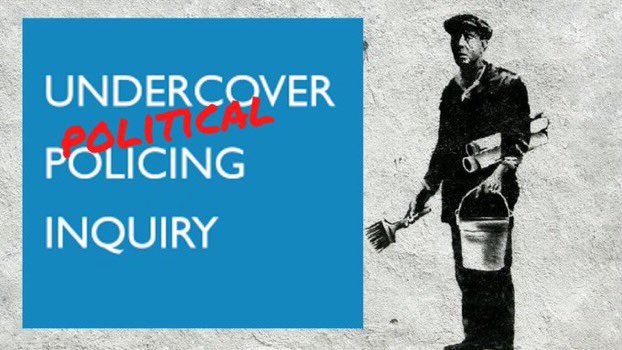
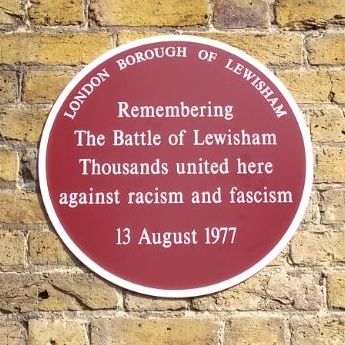

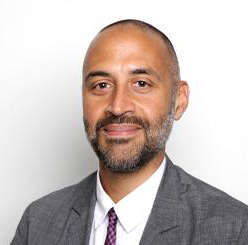
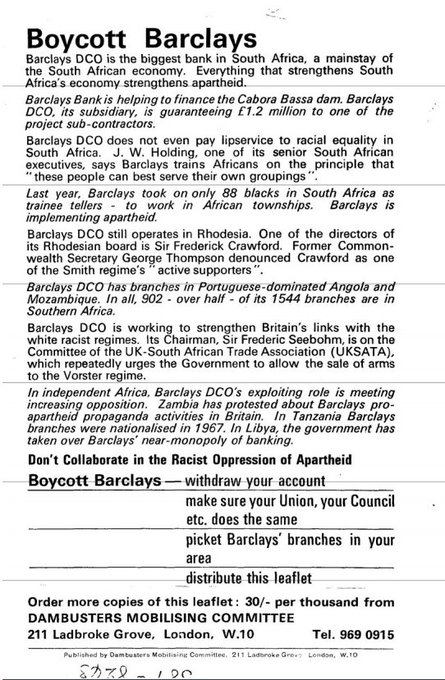
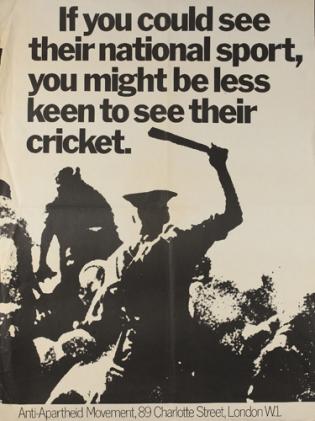 Yesterday the police told the Inquiry said they would have behaved identically if a racist campaign had opposed a black sports team touring England. But supporting racism is different from opposing it. Equivocation between the motivations and actions of the left and far-right was apparent in the witness testimony of Madeleine earlier.
Yesterday the police told the Inquiry said they would have behaved identically if a racist campaign had opposed a black sports team touring England. But supporting racism is different from opposing it. Equivocation between the motivations and actions of the left and far-right was apparent in the witness testimony of Madeleine earlier.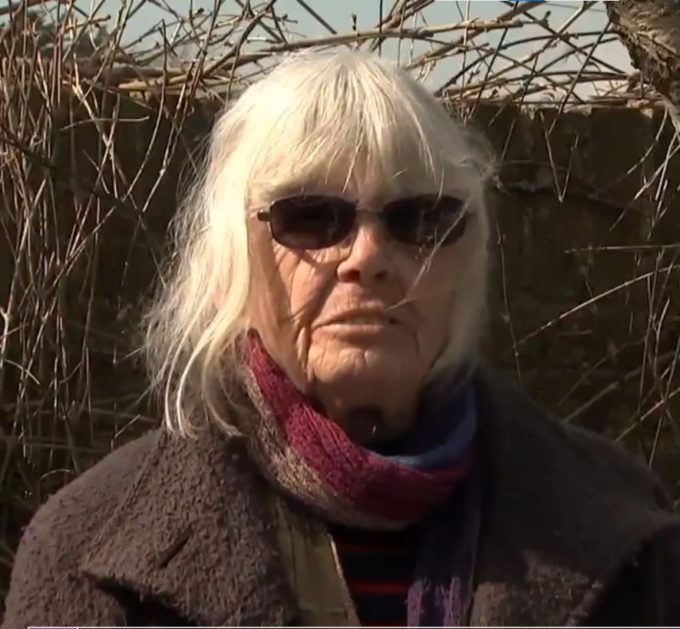
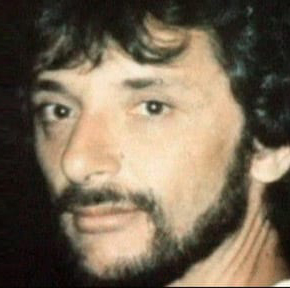
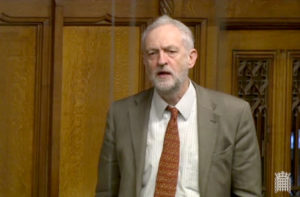 Despite grave reservations from civil liberties groups and those who have been targeted by Britain’s political secret police, the
Despite grave reservations from civil liberties groups and those who have been targeted by Britain’s political secret police, the